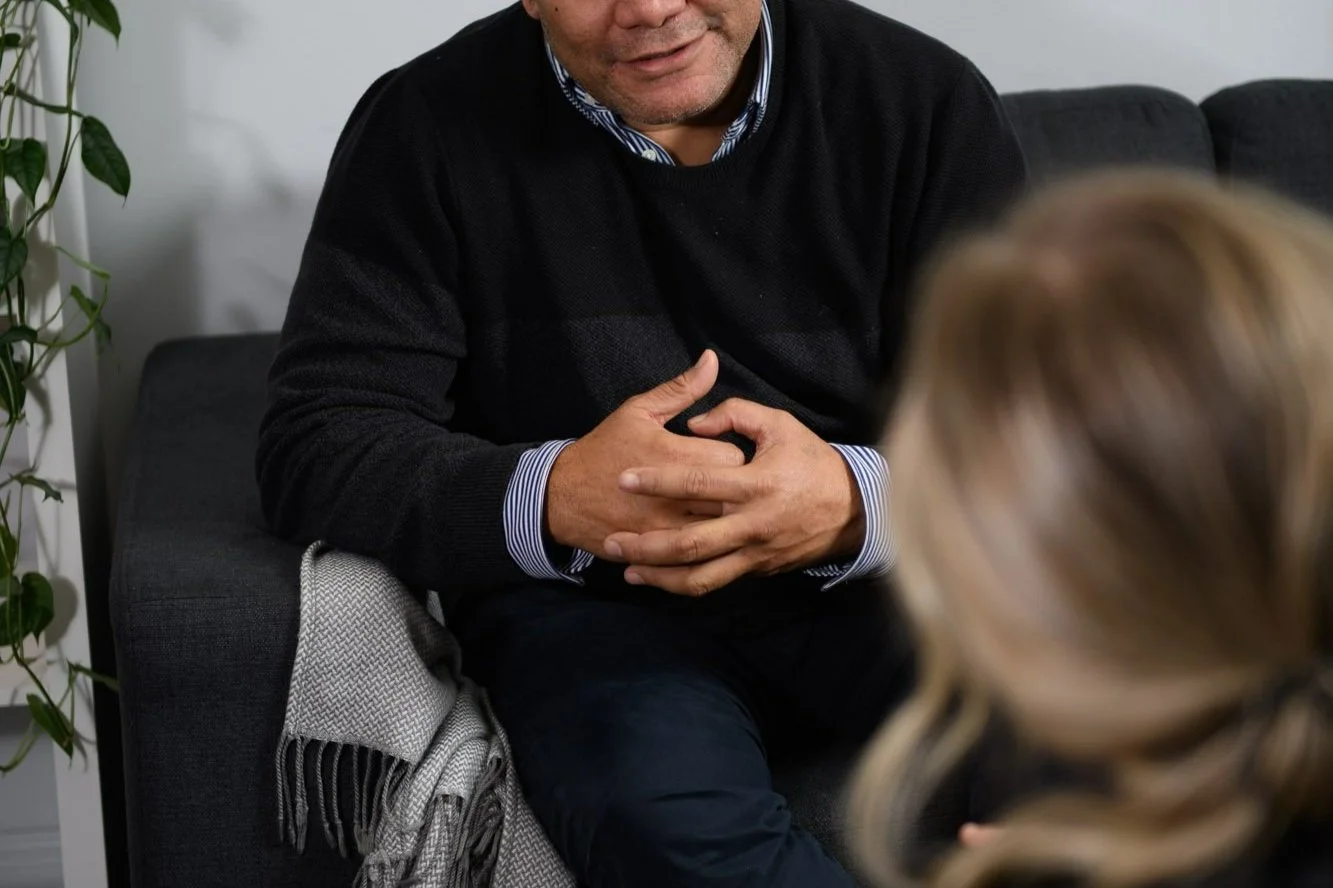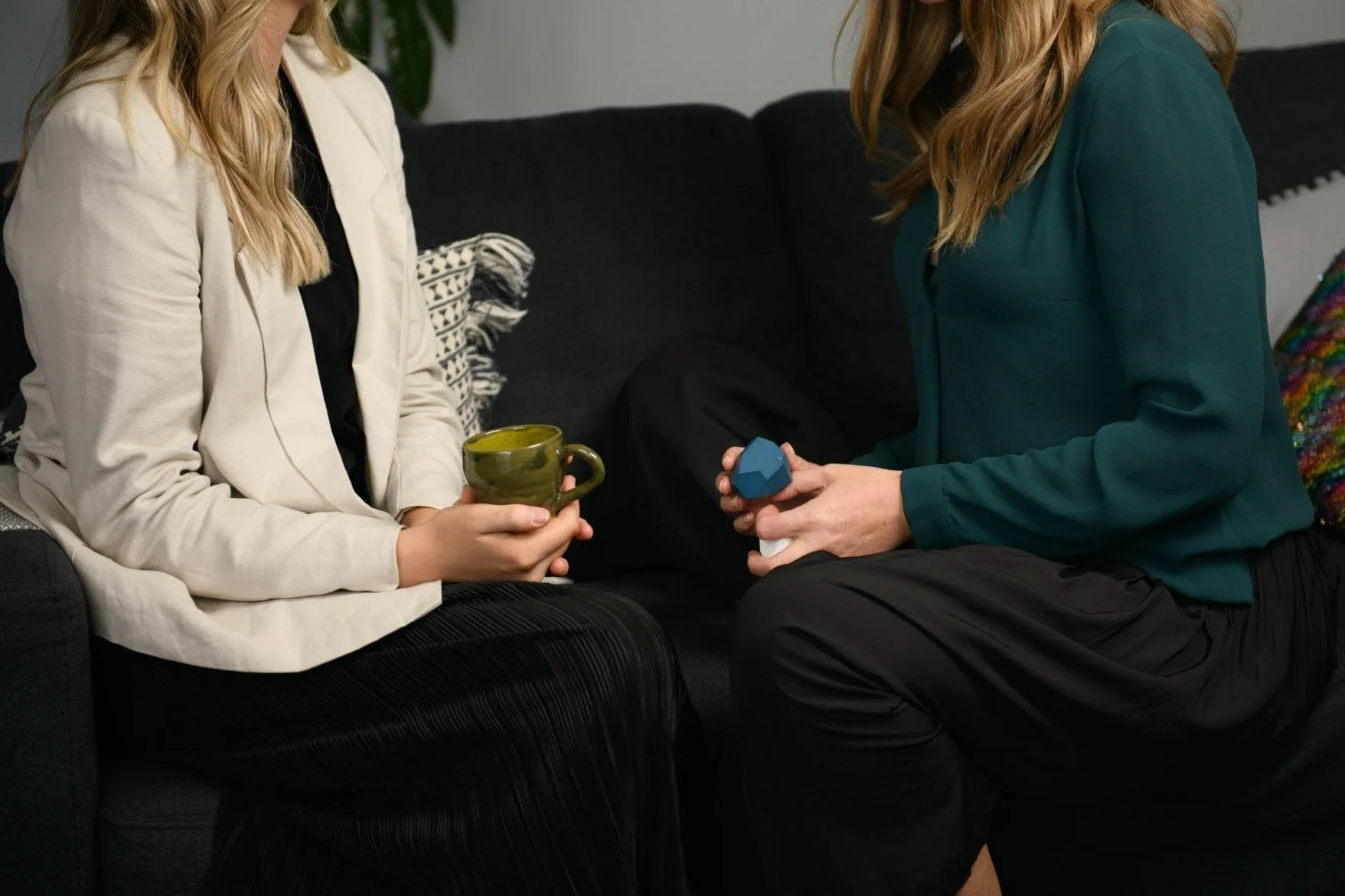Your perception of the relationship with your therapist is the biggest predictor of treatment success. So, don’t limit yourself when looking for the right mental health professional to support you.
Why can’t I just stop eating? – The psychology of binge eating
5 Child Behaviour Problems That Might Actually Be Signs Of Stress
Child Therapy Using Telehealth
When I realised we would likely need to move into the online space for our child clients, the first thing I thought of was when I have tried to have FaceTime calls with my own young children. Typically, that involves a lot of me looking at the ceiling and up their nostrils, whilst they say few words to me whilst simultaneously watching ABC kids. Not ideal for therapy.
5 things you can say or do when your child isn't listening to you
Why won’t she* just eat – A look into the brain of someone with Anorexia Nervosa
Toddler Tantrums (and how to deal with them)
7 ways to help your child with separation anxiety
Does your child ever get anxious or upset when you need to leave them? Check out these tips.
*Please note: this blog contains affiliate links. If you choose to purchase via these links, a small proportion of the profit will be returned to Healthy Mind Centre Launceston to help fund ongoing services and supports.
As I dropped my kids at their preschool the other day, there was a new child in the class who was visibly upset. He was screaming and crying as the teacher helped untangle his fingers from his mother’s coat, as she walked head-down toward the door to leave. I think tears were in everyone’s eyes. It’s incredibly difficult, for the mum who is already late to work and has a classroom full of curious and sympathetic eyes watching as she struggles to walk away from her pleading child, for the teacher who is trying to support the child whilst managing 20 other “Good Mornings”, and most of all for the child, who’s brain is in full fight or flight mode and everything in their body is screaming “No, no, please don’t leave me, I don’t feel safe or OK right now”.
You might know by now that at HMC, we truly believe in a proactive, rather than a reactive approach when managing children’s behaviour. When we (and our kids) feel like we have a plan, we understand our plan, and we know what our job is and what comes after that, we feel much calmer and our confidence is higher. Now, this doesn’t mean we don’t have our off days, of course we do! Additionally, our children are humans, not robots, and they have their own moods and perceptions that can vary things unexpectedly. But in general, if we all feel proactive, it’s a lot easier to deal with challenges because we feel safe and we can predict what comes next. So,here are some tips for managing separation anxiety in situations like school drop-offs.
Create and rehearse your goodbye strategy, at home where everyone feels safe and comfortable. Have your child be part of creating this strategy. Make it short and simple, and practice practice practice. Your child should be bored silly of it by the time you are done.
Do a practice run, on the weekend if you can, or in the school holidays when no one else is around. Do as many practice runs as you and your child need to, again, until you are both bored by it. Make sure your practice run follows your goodbye strategy in point 1.
Be educated about separation anxiety. Know what is happening so you are informed. Know how parents can accidentally reinforce anxiety in their children, and how to avoid doing this. A great resource for you is this book.
Have a transitional object. This might be a comforting teddy, an item of yours, or something special you have created together. Or it could be something imaginary, like this. Use this in your routine and when you are practicing.
Be aware of you own reactions. Model that you believe it’s a safe place for your child to go. Show excitement for them to experience it.
Validate their feelings. Their experience is akin to you freaking out because you’ve been left alone by your loved one, in a strange city with an unfamiliar job to do. It’s tough, and they will be helped by some empathetic reflections by you, such as “Yeah, I can see it’s really tough for you when I go to leave, you get really worried”.
On D-day, model a positive goodbye. If you child sees you are anxious about leaving them, it can make their fear worse. Be comfortable with the idea that school is a safe place, and let them know you truly believe that.
Hopefully these tips are helpful. They can of course be modified to suit any situation where you need to leave your child without their secure caregiver. We’d love to know if they made things a little easier with you and your little one. Remember that if difficulties persist and you and your child need a little (or a lot) more support, seeking help from a qualified mental health practitioner is probably a good idea.
Olivia Boer is a Clinical Psychologist and the Director of Healthy Mind Centre Launceston, a group allied health practice in Launceston, Tasmania.
GROWTH MINDSET 💪
Have you heard of it? Perhaps you have seen it on a poster in your kid's classroom, or seen a blog or motivational post on Facebook or Instagram. It's a fairly big idea in popular psychology at the moment, based on Carol Dweck's book "Mindset".
In a nutshell, a Growth Mindset refers to the idea that our abilities and knowledge can be developed. We can get smarter, do better, and achieve greater through putting in time and effort. This is in contrast to a Stuck Mindset, which refers to the idea that abilities and understandings are relatively fixed; aka, you either have it or you don't.
Why is this so important in parenting? Well, for starters, if we have a growth mindset we have more confidence to try again when we fail at something, we change direction when we realise we were stuck, and we ask for help when we need it. A growth mindset is more than thinking positive thoughts, or even having flexible thoughts. It's also more than just praising and rewarding effort, and it's definitely not enough by itself - even the strongest growth mindset needs to be backed up by taking action.
So what does a growth mindset look like in parents?
👉Thinking about the underlying cause of a parenting challenge, finding a new way, and applying that new way next time
👉Considering parenting difficulties as an opportunity to grow, rather than admitting defeat or concluding that it's just not your cup of tea
👉Adopting a curious attitude toward parenting and embracing opportunities to learn
👉Creating a belief in yourself, in your own parenting skills and abilities, and your capacity to change
👉Rewarding your parenting actions rather than your parenting traits
👉Being ok with being vulnerable and taking feedback, then committing to growth and taking pride in all your hard work and effort.
I challenge you to notice your stuck parenting thoughts and flip them into a growth thought (and then take action on this!).
How do you feel about your parenting from this point onward, once this happens?
Olivia Boer is a Clinical Psychologist and Director of Healthy Mind Centre Launceston, a private allied health practice in Launceston, Tasmania.
Photo by Markus Spiske on Unsplash.
Kick self-doubt in the balls really hard and keep going!
We all struggle with self-doubt from time to time. Our Accredited Mental Health Social Worker Sam has put together 5 tips for tackling self-doubt head on.
When I started to write this article, I felt immediate self-doubt about its title. Was it too aggressive? Was it too inappropriate? Is this what a professional mental health professional should say? Will people judge me for it? Will it cause offence? I began to worry, over analyse, feel anxious and stress about it. I was listening to self-doubt creep around and whisper bitterness to me.
And then I thought, no! Self-doubt sucks and deserves to be kicked in the balls!
Self-doubt is that little voice that sits in the back of your mind and makes you wonder about all the awful things about yourself. It comes quietly in the night when you’re trying to sleep. It pops up when you’re about to meet up with a friend. It shoots you down when you have a brilliant idea. It makes you question your abilities when aiming for an important achievement. It strangles you after browsing social media. In short, self-doubt does all it can to hold you back.
Worst of all self-doubt knows you really, really well. It knows your insecurities and it knows exactly how to hurt you.
Sure, self-doubt might help us at some points. Such as waking us up to our limitations. It might wisely suggest that I can’t jump that gap on my bike like I used to. Or it might suggest appropriately, that no I can’t pull off that fashion statement as I once did.
But besides some of the friendly wake up calls, self-doubt is really no friend to us.
Self-doubt eats away at us. And if we are not careful self-doubt will take a big chunk out of our self-esteem. The confidence we once had to walk into a room smiling, feeling comfortable, and self-assured, can be destroyed. It leaves us nervous, quiet, scared and unsure of ourselves.
So how do we kick self-doubt in the balls?
Challenge the doubt: The doubt that sneaks in, challenge it and ask yourself whether it is based on realistic facts or is it shrouded in untruths? If you discover it to not be true, don’t listen to it.
Remind yourself: Remind yourself of all the times you have overcome hardships or tackled tough obstacles. Remind yourself that you have had the strength and abilities to do those things in the past. There is no reason why you don’t have those strengths and abilities now.
Avoid comparisons: Don’t compare yourself to other peoples’ success. Don’t be sucked in by other peoples’ Instagram photos or the awesome lives people post about on social media. It’s not about them, it’s about you. Look at where you have come from, look at your achievements, look at where you are going. That’s all that matters.
Stop it: Be bold and stand up to those self-doubting thoughts. They don’t have control, you do. Tell them ‘stop it! You are not helping me! I am in control!’
Confidence: Even if we are a super confident person, at times we will have these self-doubts. That’s okay, it means you’re human. But you can choose to listen to them and not strive ahead, or you can choose to kick that self-doubt in the balls and keep going.
Sam Shand is an Accredited Mental Health Social Worker at Healthy Mind Centre Launceston, a private allied health practice in Launceston, Tasmania.














